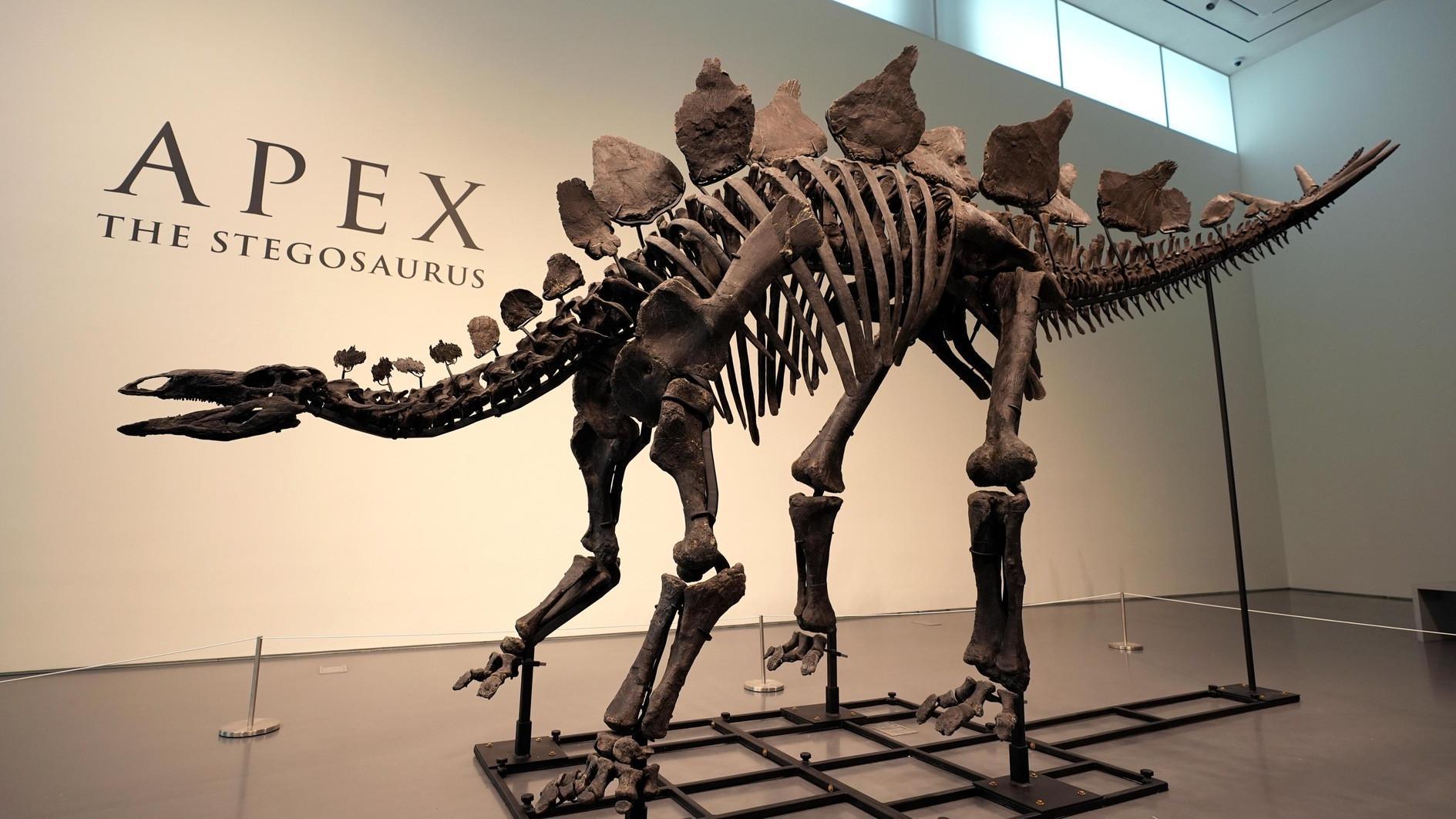
The largest stegosaurus skeleton ever found is expected to fetch millions of dollars at auction in New York next week, likely fueling objections from paleontologists.
The fossil, estimated to be approximately 150 million years old, was put on display at Sotheby's on July 10 and will be exhibited there until its sale on July 17.
Named Apex, the giant 3.3-meter-skeleton is billed as "the most complete and best-preserved" stegosaurus specimen of its size, counting 254 fossil bone elements of an approximate total of 319.
Such sales have become more frequent in recent years, drawing criticism from paleontologists, who say that these finds should be preserved in museums or other public spaces and not sold to private bidders.
"It's a very, very rare animal, and to find one of this size and this completeness is phenomenal," Cassandra Hatton, head of science and popular culture at Sotheby's, told AFP.
The auction house estimates Apex's value at $4-6 million, though still less than Stan, the world's most complete tyrannosaurus rex skeleton sold in 2020 for a record $31.8 million.
Apex was discovered in May 2022 on the private land of paleontologist Jason Cooper. The auction house says it has collaborated with Cooper to "document the entire process, from discovery and excavation to restoration, preparation and mounting," in order to guarantee the "highest standards and transparency."
In 2022, Christie's auction house had to withdraw a T-rex skeleton a few days before auction in Hong Kong, due to doubts about its authenticity.
Stegosaurus skeletons are already on display around the world, but according to Sotheby's, Apex is 30 percent larger than Sophie, the most complete stegosaurus on public display to date, which is housed in the Natural History Museum in London.
The debate around auctions of dinosaur fossils is one "I've heard a lot," said Hatton. "When you have a scientifically important specimen, the museums usually show up and find donors to bid on their behalf or they bid themselves."
"Most of the people I work with are donating specimens to museums or loaning them to museums, they understand the significance and importance of these specimens."
According to Sotheby's, Cooper has already donated fossils to museums around the world.